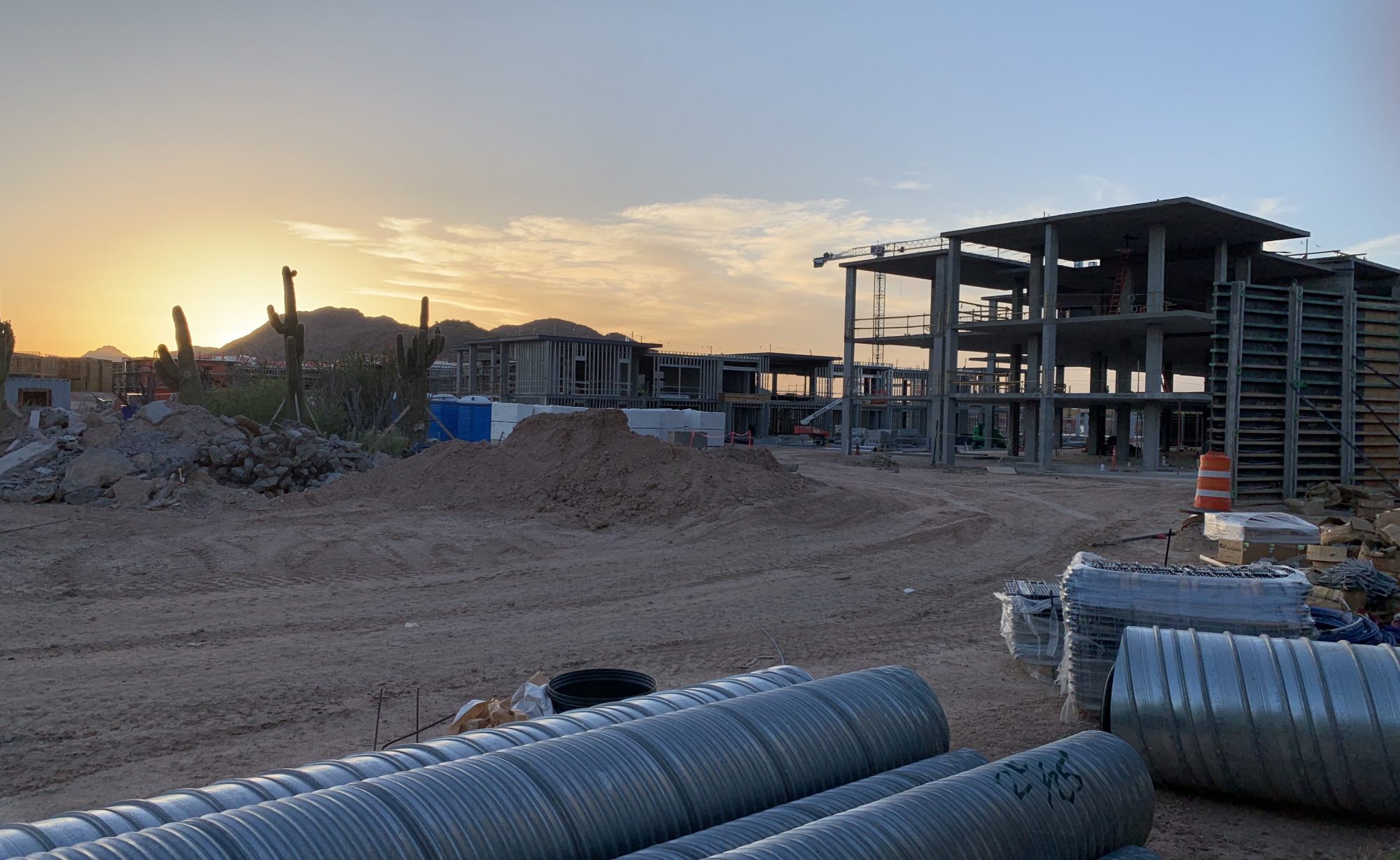***UPDATE***
The Court of Appeals’ opinion in Weitz Co., LLC v. Heth, 314 P.3d 569, 674 Ariz. Adv. Rep. 29 (App. 2013), which is the subject of this post from January 8, 2014, was vacated by the Arizona Supreme Court on August 26, 2014. As such, the case below is no longer good law. I will be drafting a post on the Supreme Court’s opinion in the near future.
As experienced contractors and material suppliers know, actions to foreclose upon mechanic’s liens can involve lien priority disputes with lenders. Contractors and suppliers recently scored a significant victory in connection with these disputes in Weitz Co., LLC v. Heth, 314 P.3d 569, 674 Ariz. Adv. Rep. 29 (App. 2013) which struck down the doctrine of equitable subrogation in the context of mechanic’s liens. Simply put, equitable subrogation “enables a later-filed lienholder to leap-frog over an intervening lienholder.” It had previously been used in Arizona to allow subsequent lenders who supplied funds to pay off a primary lien to jump intervening mechanic’s liens and be substituted into the position of the primary lienholder.
Background
The dispute in Weitz arose from the development of a 165 unit mixed-use residential and commercial condominium project in Phoenix. The project was financed by a construction loan from First National Bank of Arizona (“First National”) that was secured by a deed of trust. Construction began and the general contractor – Weitz Company, LLC (“Weitz Co.”) – served a preliminary twenty-day mechanic’s lien notice on January 18, 2006. Towards the end of the project, the owner became unable to pay Weitz Co.
The owner began selling individual condominium units in September 2007 before the completion of construction. Ninety-two units were sold, and most were financed through commercial lenders. The proceeds from these sales went to pay off portions of First National’s construction loan, but the amounts owed to Weitz Co. remained unpaid. Weitz Co. subsequently recorded a mechanic’s lien against the project, and ultimately sued to foreclose that lien against, among others, the purchasers of the units and their lenders (the “Lenders”). The Lenders argued that they had priority over Weitz Co.’s lien because they were equitably subrogated to First National’s position. Weitz Co. countered that, under A.R.S. § 33-992(A), its lien had priority over all liens attaching after construction began. The parties filed cross motions for partial summary judgment, Weitz Co. prevailed, and the Lenders appealed.
Discussion
In its decision in Weitz, the Arizona Court of Appeals first noted that the priority of mechanic’s liens is governed by A.R.S. § 33-992(A), which provides in part:
The liens provided for in this article…are preferred to all liens, mortgages or other encumbrances upon the property attaching subsequent to the time the labor was commenced or the materials were commenced to be furnished except any mortgage or deed of trust that is given as security for a loan made by a construction lender…if the mortgage or deed of trust is recorded within ten days after labor was commenced or the materials were commenced to be furnished.
The court then addressed the Lenders argument that “Arizona courts have consistently recognized and applied equitable subrogation in the context of mechanic’s liens.” As support for their position, the Lenders cited to the Court of Appeals decisions in Lamb Excavation, Inc. v. Chase Manhattan Corp., 208 Ariz. 478, 95 P.3d 542 (App. 2004) and Peterman-Donnelly Eng’rs & Contractors Corp. v. First Natl. Bank of Arizona, 2 Ariz.App. 321, 408 P.2d 841 (1965). In both Peterman-Donnelly and Lamb subsequent lenders were equitably subrogated to the position of the primary lender, ahead of prior-in-time mechanic’s liens.
But in Wietz, the court disagreed with the application of equitable subrogation in Peterman-Donnelly and Lamb. The court found that these prior decisions “failed to adhere to the plain language of § 33-992,” and “failed to recognize that § 33-992 does not provide an exception for altering the priority [Arizona’s] legislature has afforded to mechanic’s liens.” In other words, the court held that Peterman-Donnelly and Lamb were incorrectly decided insofar as they “stand for the proposition that a court may apply equitable subrogation to override the plain language of § 33-992.” As such, the court concluded “that equitable subrogation cannot operate to supersede the statutory requirement that mechanic’s liens have priority over all subsequent encumbrances, except for construction loans filed within the narrow time constraints of the statute” and affirmed the trial court’s grant of summary judgment in favor of Weitz Co.
Conclusion
The ruling in Weitz is a significant victory for contractors and suppliers in protecting their mechanic’s lien rights. In addition to affirming that mechanic’s liens have priority over liens attaching after the commencement of construction (subject to the construction loan exception), it allows contractors and suppliers to rely on the clear language of A.R.S. § 33-992 in determining the priority of their liens.
